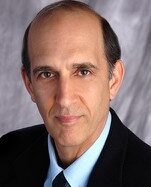WorldNetDaily managing editor David Kupelian rehashes an old theme in a Feb. 15 column:
Here we go again. A horrific mass shooting occurs. Everyone is in shock and grief. Democrats blame guns and Republicans. Pundits urge the public, “If you see something, say something.” And everyone asks, “Why?”
As information about the perpetrator emerges, a relative confides to a newspaper that the “troubled youth” who committed the mass murder was on psychiatric medications – you know, those powerful, little understood, mind-altering drugs with fearsome side effects including “suicidal ideation” and even “homicidal ideation.”
Yet the predictable response from the press is always the same – not only a total lack of curiosity, but disdain for any who ask the question, as though connecting psychiatric meds to mass shootings is pursuing a “conspiracy theory.”
Here’s a good way to tell whether or not something is a conspiracy theory: If it’s true, it’s not a conspiracy theory.
In the case of Nikolas Cruz, the 19-year-old Florida mass-shooter, his mother’s sister, Barbara Kumbatovich, told the Miami Herald that she believed Cruz was on medication to deal with his emotional fragility.
[…]Fact: A disturbing number of perpetrators of school shootings and similar mass murders in our modern era were either on – or just recently coming off of – psychiatric medications.
One example he cites of this is “Andrea Yates, in one of the most heartrending crimes in modern history, drowned all five of her children – aged 7 years down to 6 months – in a bathtub. Insisting inner voices commanded her to kill her children, she had become increasingly psychotic over the course of several years.” Kupelian adds that “Yates had been taking the antidepressant Effexor.”
Blaming antidepressants for mass shootings — never mind his ignorance of fact that correlation does not necessarily equal causation — is something Kupelian has been doing for years. Strangely, the perpetrators he lists as examples appear to all be white; if you’re a Muslim mass killer, Islam is to blame, apparently.
But as we pointed out back in 2010, Kupelian’s inclusion of Yates on that list leaves out one important piece of information: At the time of the deaths, Yates and her husband were in thrall to a fundamentalist Christian street preacher who convinced the Yateses to sell their possessions and live in a bus the preacher had sold them.
But dismissing inconvenient facts is what Kupelian does — and that’s one reason why WND is currently fighting for its life.
